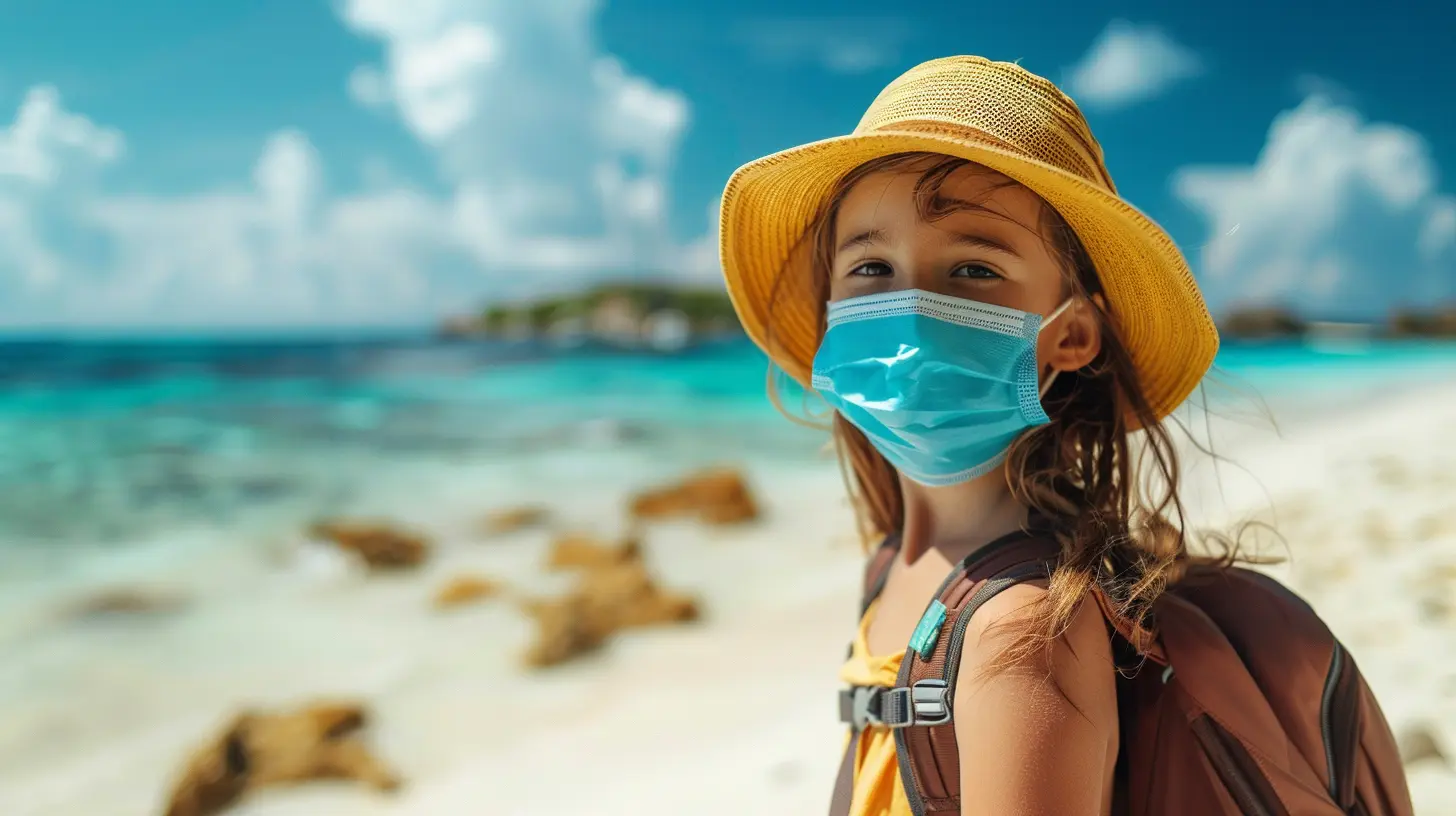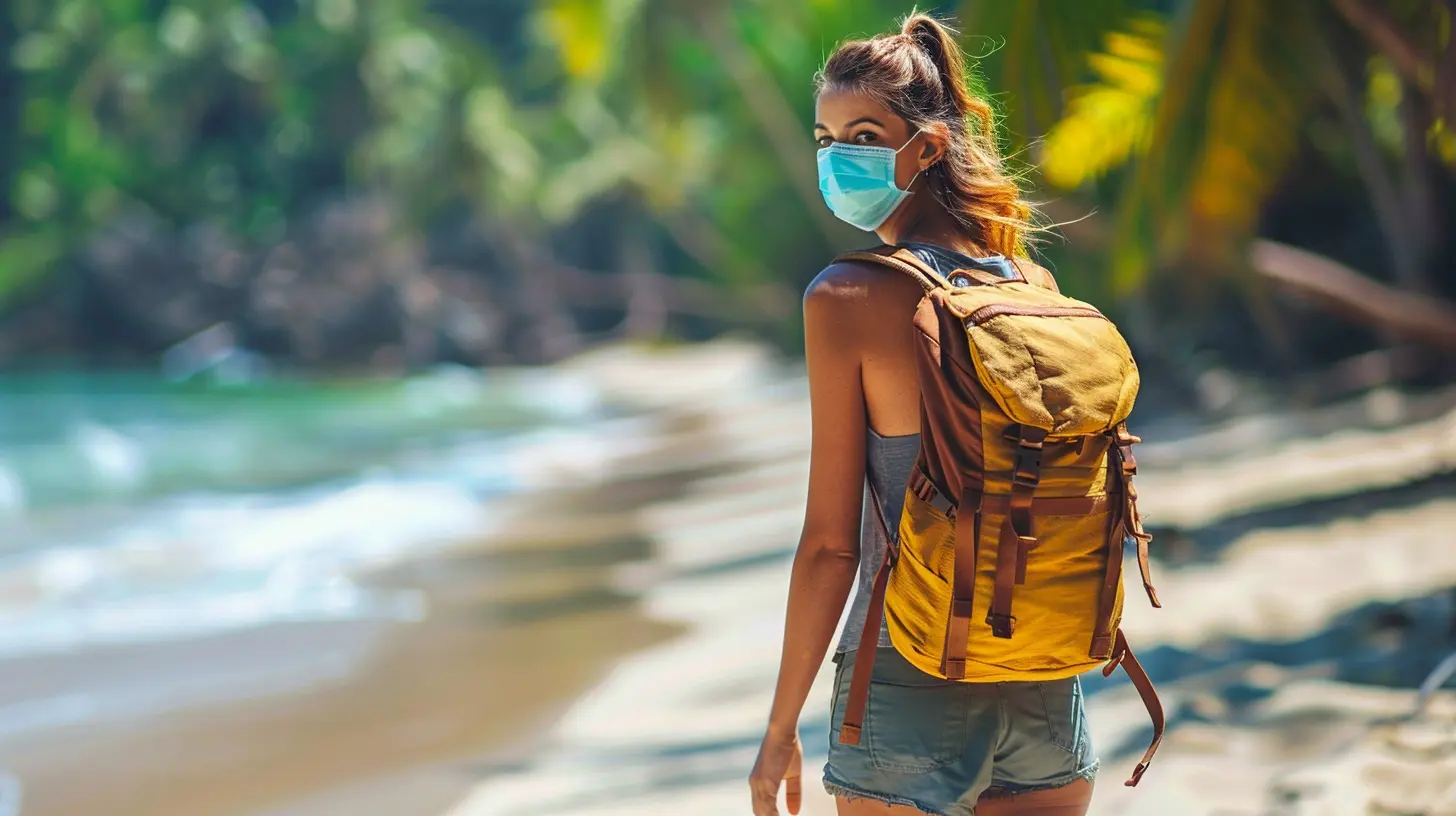Preventing Insect Bites and Staying Safe in Tropical Countries
30 October 2025
Planning a trip to a tropical paradise? Whether you're heading to the sandy beaches of Thailand, the wild rainforests of the Amazon, or the buzzing markets in Kenya, you've probably heard that tropical destinations come with more than just sunshine and palm trees. Yep, I'm talking about insects—the tiny, buzzing, occasionally-biting kind.
Now before you start scratching imaginary itches, let’s get one thing straight: insect bites aren’t just annoying; in some tropical areas, they can be dangerous. We’re talking about diseases like malaria, dengue fever, Zika virus, chikungunya, and more. But don’t freak out just yet! With the right precautions, you can stay itch-free and safe during your adventure.
Let’s dive into the ultimate guide on preventing insect bites and staying safe in tropical countries. It’s packed with tips, tricks, and real-deal info that will keep you protected while enjoying every sunset, hike, and street-food tasting.
Why Worry About Insect Bites in the Tropics?
Insects are a natural part of the tropical ecosystem. Warm temperatures, frequent rainfall, and lush vegetation create the perfect breeding ground for mosquitoes, sandflies, ticks, and even fleas.But here’s the kicker: these bugs aren't just a nuisance — they can carry some pretty nasty diseases. Here's a quick hit-list:
- Mosquitoes – Malaria, Dengue, Zika, Yellow Fever, Chikungunya
- Ticks – Lyme Disease (less common in tropics), Tick-Borne Encephalitis
- Fleas & Sandflies – Leishmaniasis, Typhus
Sounds scary? It doesn’t have to be. You can totally sidestep these risks with a little bit of knowledge and preparation.
Step One: Know Before You Go
Research Your Destination
Not all tropical countries share the same risks. Some areas are malaria hotspots, while others may only have seasonal outbreaks of dengue or Zika.Start by checking:
- CDC (Centers for Disease Control and Prevention) and WHO (World Health Organization) websites for travel health notices.
- Local government or embassy sites for updates.
- Travel forums and blogs (like this one!) with recent traveler experiences.
Get Vaccinated and Consider Prophylactic Meds
Some insect-borne diseases are preventable with vaccines (like Yellow Fever), while others (like malaria) may require a course of meds before, during, and after your trip. Book an appointment with a travel clinic 4–6 weeks in advance. They’ll hook you up with:- The right vaccines
- Prescription antimalarial drugs (if needed)
- Specific advice tailored to where you're going
Step Two: Dress the Part
Cover Up (Yes, Even in the Heat)
It may seem counterintuitive to wear long sleeves when it’s hot and humid, but minimizing exposed skin is key.Opt for:
- Lightweight, breathable fabrics like linen or moisture-wicking synthetics
- Long-sleeved shirts and long pants, especially during dawn and dusk (mosquito prime time)
- Neutral colors – Bright colors and floral prints attract insects (sorry, tropical vibes!)
Treat Your Clothes With Permethrin
Permethrin is a synthetic repellent that can be sprayed on clothing and gear. It repels and even kills insects on contact. You can buy pre-treated clothes or treat them yourself at home before packing.Pro tip: Don’t use permethrin directly on your skin — it's just for your gear!
Step Three: Slather on the Right Repellent
DEET vs. Natural Repellents
When it comes to insect repellent, DEET is the OG. It’s been used for decades and is super effective. But if you’re not into chemicals on your skin, there are alternatives.Top Bug-Repelling Ingredients:
- DEET (20%–50%) – Gold standard for serious protection
- Picaridin – Less greasy, less smelly, and almost as effective as DEET
- Oil of Lemon Eucalyptus – Plant-based, decent natural alternative
- IR3535 – Found in some Euro repellents, gentle on skin
Just remember — natural doesn’t always mean better. If you're heading into malaria or dengue zones, go for the big guns like DEET or Picaridin.
How to Apply Repellent Like a Pro
- Apply after sunscreen (if you’re using both)- Cover all exposed areas – don’t forget ankles, ears, and the back of your neck!
- Reapply every few hours, especially if you're sweaty or swimming a lot
Step Four: Create a Bug-Free Zone
Sleep Under a Mosquito Net
If you’re staying in a rural area, jungle lodge, or anywhere without AC or sealed windows, a mosquito net is your best bedtime buddy.Look for:
- Insecticide-treated nets, ideally with permethrin
- Nets that tuck under your mattress so no sneaky bugs can get in
Pro tip: If your hotel doesn't offer one, pack a portable net — they’re lightweight and easy to set up.
Use Insect Screens and Air Conditioning
Air-conditioned rooms generally have fewer bugs. If AC isn’t an option, make sure windows and doors have screens. No screens? Keep them closed at night and during dusk/dawn.Light a Few (Safe) Coils or Plug-Ins
Mosquito coils, citronella candles, or electric plug-ins with insecticide can help keep mozzies away from your room, porch, or dining area. Just be mindful of ventilation — you don’t want to inhale too much smoke or chemicals.Step Five: Be Smart About Where You Go (and When)
Avoid Standing Water
Mosquitoes lay their eggs in stagnant water — think puddles, buckets, even that half-empty coconut by your hammock.Try to:
- Stay away from areas with standing water (especially at dawn or dusk)
- Dump out water containers near your lodging, if you can
Time Your Activities
Mosquitoes are most active at dawn and dusk, while some types, like the Aedes mosquito (which transmits dengue and Zika), bite during the daytime.So:
- Be extra cautious during these times
- Amp up protection before heading out
Step Six: Protect the Whole Crew (Kids and Pets Too!)
Kids
Insect repellents are generally safe for kids—but there are limits. For example, DEET products should have no more than 30% DEET for kids and never be used on babies under 2 months.Tips for protecting children:
- Dress them in long sleeves and pants
- Use mosquito nets for cribs and strollers
- Apply repellent to your hands first, then rub onto the child (avoid eyes and hands!)
Pets
If you’re traveling with a furry friend (some people do!), make sure they’re protected too. Dogs, cats, and other animals can also get diseases from insect bites, especially in rural areas.Talk to your vet before you fly!
Step Seven: Know the Symptoms and Act Fast
Even with all the right precautions, bites can happen. So it’s crucial to know what to look for and when to seek help.Watch for Warning Signs:
- Fever and chills- Fatigue or body aches
- Rashes
- Headache
- Joint pain
These symptoms could be signs of something more serious like malaria, dengue, or Zika. If you feel "off" after getting bitten—or even after the trip ends—see a doctor pronto. Mention that you’ve been to a tropical region.
What About After You Get Bitten?
Sometimes, even with your best ninja moves, you’ll still get a bite (or three). Here's what to do:Immediate Relief
- Clean the bite with soap and water- Apply a cold compress to reduce swelling
- Use anti-itch cream (calamine lotion or hydrocortisone)
- Pop an antihistamine if the itching gets intense
Avoid scratching — seriously, that's how bites get infected, and it just makes the itch worse!
Bonus: Natural Remedies (If You're Into That)
Some folks swear by natural repellents and bite treatments. While they're not always as effective as the scientific stuff, they do have fans.Popular options:
- Tea Tree Oil – Antiseptic, good for soothing bites
- Lavender Oil – calming and helps reduce swelling
- Neem Oil – traditional Indian remedy for repelling bugs
- Aloe Vera – cooling and soothing for itchy skin
If you're trying these, always patch-test first to avoid allergic reactions.
Final Thoughts: Better Safe Than Sorry
Tropical countries are filled with jaw-dropping beauty, amazing cultures, and experiences that will stick with you for a lifetime. Don’t let some buzzing bugs ruin the adventure.When it comes down to it, preventing insect bites is all about being proactive. Pack smart, dress right, go heavy on the repellent, and know what you’re up against. With a little prep and awareness, you’ll be sipping coconuts and swinging in hammocks without a care (or a bite) in the world.
Now go chase those sunsets — just don’t forget the bug spray!
all images in this post were generated using AI tools
Category:
Travel HealthAuthor:

Taylor McDowell
Discussion
rate this article
1 comments
Ariadne Snyder
Great tips! Staying safe is essential.
November 6, 2025 at 4:19 AM

Taylor McDowell
Thank you! Staying safe from insect bites is crucial for a healthy trip. Appreciate your support!


